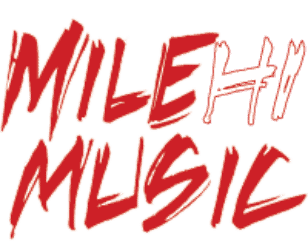COPYRIGHT LAW BASICS
Article 1, Section 8 of the Constitution of the United States
“Congress shall have the power to … To promote the Progress of Science and useful Arts, by securing for limited times to Authors and Inventors the exclusive Right to their respective Writings and Discoveries.”
U.S. COPYRIGHT ACT
Grants Exclusive Rights to Copyright Authors or Owners
- Right to Reproduce
- Right to Make Derivative Works
- Right to Distribute
- Right to Perform
- Right to Display
EVERY RECORDED SONG CONTAINS TWO COPYRIGHTS
1) MUSICAL COMPOSITION
The notes and lyrics of the song
2) SOUND RECORDING
The Recording Artist’s recorded version of the song
Even if the recording artist is the songwriter, two copyrights are created – one for the sound recording and one for the musical composition.
What is a Music Publisher
A music publisher works with songwriters to market and promote their songs, resulting in exposure of songs to the public and generating income. Music publishers “pitch” songs to record labels, movie and television producers and others who use music, then license the right to use the song and collect fees for the usage. Those fees are then split with the songwriter.
Music Publishers and Record Labels
Songwriters enter into publishing, co-publishing, or administration agreements with music publishers. In exchange for acquiring the copyright, a portion of the copyright, or a percentage of the revenue earned from the exploitation of the musical composition, the music publisher seeks opportunities to exploit the musical composition, collects revenue from the exploitation, and pays and accounts to the songwriter. The music publisher share is usually 50%.
Recording artists assign their copyrights to a record label in exchange for a negotiated royalty.
NMPA
The National Music Publishers’ Association (NMPA) was founded in 1917, NMPA is a trade association representing over 800 American music publishing companies in the United States. Its mission is to protect its members’ intellectual property rights on the legislative, litigation and regulatory fronts. The NMPA is the voice of both small and large music publishers and remains the most active and vocal proponent for the interest of music publishers and songwriters in the US and throughout the world. The NMPA also wholly owns and controls the Harry Fox Agency, the largest mechanical rights collecting society in the United States, with over 36,000 publishing members.
Types of Licenses Issued by Music Publishers
- Reproduction (Mechanical) Licenses
Music distributed in physical and digital form. The royalties are generally collected and paid by the Harry Fox Agency. - Public Performance
Licenses Music broadcast on radio (terrestrial and satellite), in live venues, and other public places. The royalties are collected and paid by public performance societies (ASCAP, BMI, and SESAC). Each broadcaster receives a blanket license from each performing rights society, in exchange for a royalty fee. - Synchronization Licenses
Music used in film, television, commercials, music videos, etc. Publishers enter into direct licenses with users. - Folio Licenses
Music published in written form as lyrics and music notation either as bound music folios or online lyric and tablature websites. Publishers enter into direct licenses with users.
First Use of Musical Composition
Songwriters and recording artists generally have the right to approve first use of their work.
Recording artists (or their record labels) continue to have the right to approve subsequent uses of their sound recordings by third parties.
While songwriters (or their publishers) generally have the right to approve subsequent uses of their musical compositions, the songwriter does not have an absolute right to approve the reproduction of their musical composition in copies and phonorecords. Sec. 115 of the Copyright Act provides that a user may secure a compulsory license to make copies and phonorecords of the musical composition, without the authority of the songwriter.
Section 115 Compulsory License Requirements
- – The musical composition must be a non-dramatic musical work (not an opera or musical.)
- – The musical composition must be previously recorded.
- – The previous recording has been distributed publicly in the U.S.; and
- – The use of the recording will be in phonorecords only (audio only).
Compulsory License Rate Setting
The royalty rate paid to the songwriter under a compulsory license is set by an independent government tribunal called the Copyright Royalty Board (CRB). The fi rst rate for a mechanical compulsory license – 2 cents a song – was initially set by Congress in 1909. Eventually the rate setting job was delegated to Copyright Arbitra-tion Panels. Finally, in 2002, Congress created the CRB to bring autonomy and accountability to the rate setting process.
Recent Ruling of the Copyright Royalty Board (CRB)
OCTOBER, 2008
In a ground-breaking ruling, the CRB established the following rates:
- Physical Product – 9.1 cents
- Digital Product – (digital phonorecord delivery) – 9.1 cents
- Interactive Streaming – (for subscription services) and ephemeral copies – the industry stakeholders entered into a settlement agreement providing a percentage of revenue royalty. For the first time, the parties acknowledged that a mechanical royalty is due for interactive streaming.
- Ringtones – 24 cents
- Late Fee – for the first time, the CRB established a late fee of 1.5% per month, to be paid to the publishers if royalties payments are late.
The Harry Fox Agency
The compulsory license is issued by the Copyright Office. However, very few people secure compulsory licenses through the Copyright Office because of perceived onerous requirements like monthly accounting. Instead, most users secure a license through the Harry Fox Agency, which among other benefits, only requires quarterly accountings. More importantly, the Harry Fox license uses the CRB rate as a benchmark, so the CRB process is still very important.
Current Challenges
Controlled Compositions
Implementation of CRB Ruling – Late Fees
Collecting Performance Royalties in Audiovisual Downloads
Accelerating payments from record labels and other third-party users, like I-Tunes – flowthrough problem.
Piracy
Orphan works







